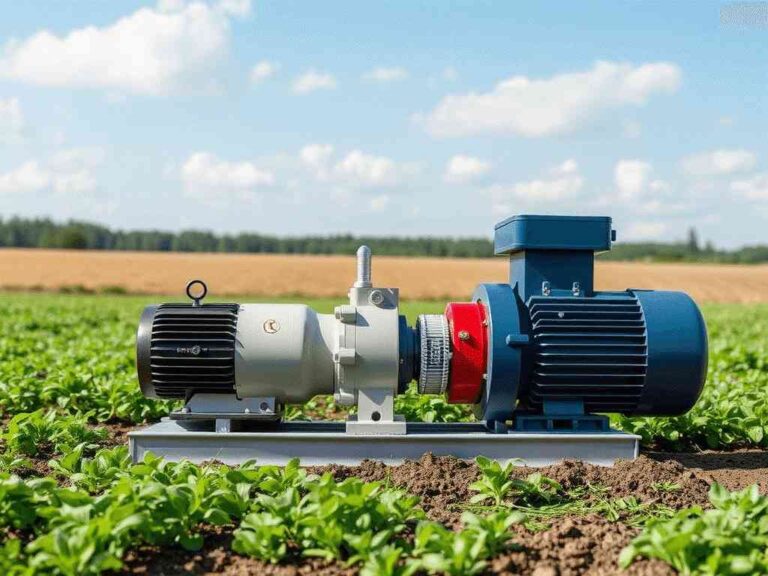Picking the right water pump for your home can feel like trying to choose the best ice cream flavor when you’ve never tasted any of them.
You know you need one, but the choices make your head spin.
Should you go with Franklin Water Pumps? What about Franklin Electric? Or maybe Red Lion is the way to go?
I’ve helped countless homeowners make this exact decision, and trust me, it doesn’t have to be complicated.
Let’s break down these three popular pump brands into bite-sized pieces that anyone can understand.
Which One Is Best: Franklin Water Pumps Vs Franklin Electric Water Pumps Vs Red Lion Pumps
Before we jump into the nitty-gritty, let’s get something straight: Franklin Water Pumps and Franklin Electric are actually related.
Franklin Electric makes Franklin Water Pumps. Think of it like how Toyota makes Lexus cars.
This little fact trips up a lot of folks, so we’re starting with a clear slate.
Red Lion, on the other hand, is a completely different company with its own approach to water pump design.
Each brand has devoted fans and specific strengths. Let’s see how they stack up.
At a Glance: Quick Comparison Table
| Feature | Franklin Water Pumps | Franklin Electric | Red Lion |
| Price Range | $300-$1500 | $350-$2000 | $200-$1200 |
| Warranty | 1-3 years (installer-dependent) | 1-5 years (installer-dependent) | 2-3 years standard |
| Best For | Wells, high-end residential | Commercial, precision applications | Budget-friendly, basic needs |
| Power Range | 1/2 HP – 5 HP | 1/3 HP – 10+ HP | 1/4 HP – 2 HP |
| Made In | USA (mostly) | USA (mostly) | USA & overseas |
| Unique Strength | Durability | Advanced technology | Value for money |
Brand Overviews
Franklin Water Pumps come from the Franklin Electric family but focus on residential water systems. They’ve been keeping American homes running since the 1940s. Their pumps have a reputation for lasting ages, even in tough conditions. Many well drillers swear by them.
Franklin Electric is the parent company and tech powerhouse. They make not just pumps but also the motors and controls that go into many other brands’ products. They’re the brains behind water movement technology in everything from homes to golf courses to industrial plants.
Red Lion started in 1935 and has built their brand around making reliable pumps that won’t empty your wallet. They’re known for straightforward designs that get the job done without fancy bells and whistles. Their pumps are popular with budget-conscious homeowners who still want quality.
Product Lineups & Where They Fit
Franklin Water Pumps offers mostly submersible well pumps, jet pumps, and sump pumps. Their sweet spot is medium to deep well applications where reliability is crucial. The Little Giant series is their most recognized line for residential use.
Franklin Electric has a wider range including everything their Water Pumps division offers plus specialized industrial pumps, solar pumps, and high-tech variable speed systems. Their SubDrive systems that adjust pump speed based on water demand are particularly impressive.
Red Lion covers the basics with solid offerings in submersible well pumps, sump pumps, sprinkler pumps, and utility pumps. Their RLSP series of sprinkler pumps is particularly popular for lawn irrigation. They don’t go as deep into specialized applications as Franklin, but they cover what most homeowners need.
Technical Comparison (what really matters)
Let’s talk about the stuff that actually impacts your daily life.
Power efficiency is where Franklin Electric shines brightest. Their motors typically use 10-20% less electricity than comparable Red Lion models. If you’re pumping water daily, this adds up on your electric bill.
Pump materials matter for longevity. Franklin pumps often use stainless steel components where Red Lion might use thermoplastic. Franklin water pumps are often recommended in such situations because they tend to handle abrasive water (like water with sand) better than plastic components.
Flow rate is how much water moves through your pipes. Red Lion pumps typically deliver good flow at lower depths, while Franklin models maintain stronger performance in deeper wells (over 200 feet).
Noise levels favor Franklin pumps, which typically run 3-5 decibels quieter than equivalent Red Lion models.
Smart technology belongs to Franklin Electric, whose controllers can link to your home automation systems. Red Lion keeps things simple with basic pressure switches.
Performance & Reliability (real-world factors)
When the rubber meets the road, what can you expect?
Franklin pumps typically last 8-12 years in average conditions, while Red Lion pumps average 6-10 years.
This isn’t just company claims – service records back this up.
For handling tough situations like sandy water or occasional dry running, Franklin pumps have better safeguards.
Their thermal protection is more responsive, shutting down before damage occurs.
Red Lion pumps start up more consistently in low-voltage situations, which matters in rural areas where power can be unstable.
For everyday use, like getting shower water to the second floor, both perform similarly.
The differences show up more in challenging conditions or over many years of use.
Installation, Maintenance & Support
DIY-friendly design is where Red Lion takes the lead.
Their pumps come with clearer instructions and often need fewer specialized tools.
Many Red Lion pumps are designed for simple replacement of just the parts that wear out.
Franklin pumps can be slightly more complicated to install but typically need less maintenance over their lifetime.
Their sealed motor design keeps out water and contaminants better.
For customer support, Franklin has more certified repair centers nationwide, but Red Lion’s simpler designs make finding any qualified plumber for repairs easier.
Both companies offer helpful videos online, but Franklin’s technical support line has longer hours and more technical depth when you’re stuck on a problem.
Price, Warranty & Total Cost of Ownership
Upfront costs favor Red Lion.
For a standard 1 HP well pump, expect to pay about $300-500 for Red Lion versus $450-700 for a comparable Franklin model.
Warranty terms require close attention.
Franklin’s warranty depends on who installs the pump.
DIY installation? You might get no warranty at all unless you purchase through certain dealers who offer their own coverage.
Red Lion offers more straightforward warranty terms regardless of who installs the pump.
Energy costs over 10 years typically run $200-300 less with Franklin pumps due to their better efficiency.
Replacement parts for Red Lion are generally cheaper, but you may need them more often.
Adding it all up, Franklin pumps usually cost less over a 10-year period despite the higher purchase price, but only if you use them in challenging conditions where their durability makes a difference.
For basic uses, Red Lion often wins the total cost comparison.
Best Use Cases / Buyer Profiles
Choose Franklin Water Pumps if:
- Your well is deeper than 200 feet
- Your water contains sand or sediment
- You need whisper-quiet operation
- You value American manufacturing
- You don’t mind paying more upfront for longer life
Choose Franklin Electric’s specialized lines if:
- You need variable speed control
- You’re setting up a solar-powered system
- You have unusual power requirements
- You need integration with smart home systems
- You have a very deep well (300+ feet)
Choose Red Lion if:
- You’re on a tight budget
- You have a shallow to medium well (under 200 feet)
- You’re comfortable doing your own installation
- You need a sprinkler pump for irrigation
- You want simple, straightforward operation
Pros & Cons (brand-by-brand)
Franklin Water Pumps Pros:
- Exceptional durability
- Better handling of dirty water
- More efficient motors
- Superior customer support
- Made in USA
Cons:
- Higher upfront cost
- Confusing warranty requirements
- Less DIY-friendly
- Overkill for simple applications
- Fewer budget options
Franklin Electric (specialized lines) Pros:
- Cutting-edge technology
- Best energy efficiency
- Great for unusual situations
- Advanced monitoring capability
- Industry-leading engineering
Cons:
- Highest price point
- May require professional installation
- Sometimes too complex for basic needs
- Parts can be specialty items
- Overbuilt for normal home use
Red Lion Pros:
- Budget-friendly pricing
- Straightforward installation
- Good performance for the price
- Clear warranty terms
- Widely available parts
Cons:
- Shorter average lifespan
- Less efficient motors
- Louder operation
- Fewer advanced features
- Less suited for difficult conditions
Conclusion
The best pump for you boils down to your specific needs and situation.
If your wallet is your main concern and you have a fairly standard setup, Red Lion offers solid value that will get the job done.
If you’re looking for the absolute best performance and longevity, especially in tough conditions, Franklin pumps are worth their higher price tag.
For most homeowners, the sweet spot is probably a Franklin Water Pump for your main well pump (where reliability really counts) and Red Lion for secondary applications like sump pumps or sprinkler systems.
Remember that the best pump in the world won’t help if it’s not properly matched to your specific water needs.
Take measurements of your well depth, water needs, and electrical setup before making your final choice.
Whichever brand you choose, proper installation makes a huge difference in pump life.
When in doubt, having a pro install even a budget pump often beats a poorly installed premium one.



